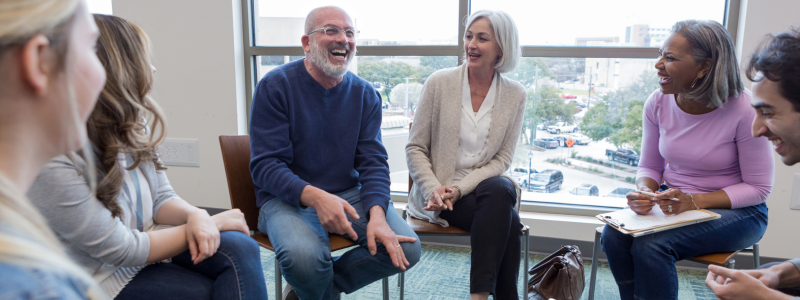Addiction affects people in unique ways. While the physical side effects are similar, like changing brain chemistry and physical cravings, your mental health plays a key role in how severe your addiction can be. Outpatient treatment is for men and women who have a strong support system and who are ready to build a foundation for lasting sobriety. If you want help with your addiction recovery and can continue with your daily commitments, an outpatient treatment program can help you reach your goal of lifelong recovery.
At Colorado Medication Assisted Recovery, we offer outpatient treatment for busy professionals who want help with their addiction recovery. We combine medication-assisted treatment and behavioral therapy to give you a better chance at maintaining your sobriety. If you or a loved one is struggling with addiction, call 833.448.0127 today to learn more about our outpatient treatment program.
Is an Outpatient Treatment Program Right for You?
The right addiction treatment program for you is determined by your initial evaluation when you arrive at a rehab center. There are two types of addiction treatment programs to help with your addiction recovery:
- Residential (inpatient) treatment program – This program is for patients who require 24/7 care. Colorado Medication Assisted Recovery does not offer residential treatment. In these programs, patients live at the facility for a set number of days and attend behavioral therapy programs to help with their addiction. Programs typically last for 30-90 days, but some cases may require longer care.
- Outpatient treatment program – An outpatient treatment program offers the same behavioral therapy and MAT program to patients who cannot take time away from their daily commitments. Patients attend therapy with day or evening sessions while living at home or in a sober community. Outpatient treatment works best for patients whose addiction symptoms are not severe enough to interrupt their work or home life. It requires a commitment to follow the program guidelines and your own ability to remain sober.
All addiction treatment programs give you access to lifelong care through aftercare programs and peer support from those you meet and help along the way. At Colorado Medication Assisted Recovery, medical staff and therapists work together to develop the right treatment for your addiction recovery. Your current physical and mental health, plus the severity of your addiction, will determine if you need a residential or outpatient treatment program.
Benefits of an Outpatient Treatment Program
While attending an outpatient rehab program, you will experience many physical and mental benefits as your body heals and your mental health improves. Just some of the benefits include:
- An outpatient treatment program offers flexible treatment. Outpatient treatment can fit your busy schedule with day, evening, and telehealth options available. You will have a set number of hours of therapy each week with scheduled appointments with medical staff to administer medication and monitor your progress.
- Treatment to meet your individual needs. Whether you need just a few hours a week of therapy or more, outpatient treatment can help with the right amount of therapy that you need to maintain your sobriety.
- A more affordable treatment option. 24/7 care can get very expensive, and some insurance plans will only pay for a portion of the cost. An outpatient treatment program is less expensive than residential care.
Colorado Medication Assisted Recovery: Outpatient Treatment for a Busy Lifestyle
At Colorado Medication Assisted Recovery, our outpatient rehab program can help busy professionals, students, and stay-at-home mothers who want to get control of their addiction. We have day, evening, and telehealth sessions available to meet your schedule and give you the help you need to get healthy and sober. Call 833.448.0127 today to speak with our staff about outpatient treatment for those with a busy lifestyle to learn more about our outpatient treatment program.


























